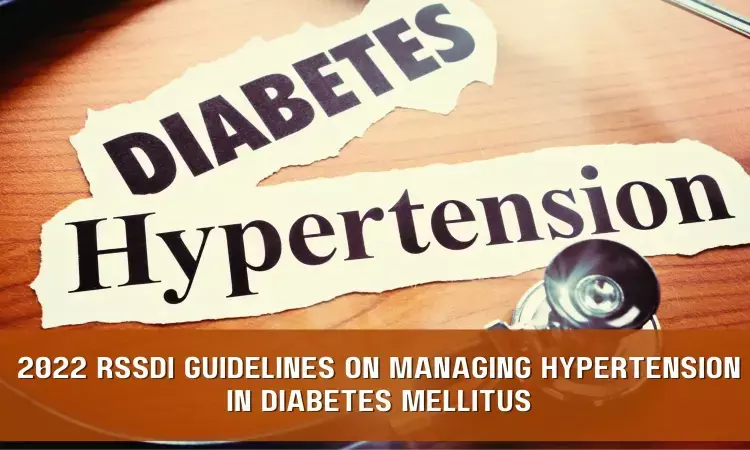- Home
- Medical news & Guidelines
- Anesthesiology
- Cardiology and CTVS
- Critical Care
- Dentistry
- Dermatology
- Diabetes and Endocrinology
- ENT
- Gastroenterology
- Medicine
- Nephrology
- Neurology
- Obstretics-Gynaecology
- Oncology
- Ophthalmology
- Orthopaedics
- Pediatrics-Neonatology
- Psychiatry
- Pulmonology
- Radiology
- Surgery
- Urology
- Laboratory Medicine
- Diet
- Nursing
- Paramedical
- Physiotherapy
- Health news
- Fact Check
- Bone Health Fact Check
- Brain Health Fact Check
- Cancer Related Fact Check
- Child Care Fact Check
- Dental and oral health fact check
- Diabetes and metabolic health fact check
- Diet and Nutrition Fact Check
- Eye and ENT Care Fact Check
- Fitness fact check
- Gut health fact check
- Heart health fact check
- Kidney health fact check
- Medical education fact check
- Men's health fact check
- Respiratory fact check
- Skin and hair care fact check
- Vaccine and Immunization fact check
- Women's health fact check
- AYUSH
- State News
- Andaman and Nicobar Islands
- Andhra Pradesh
- Arunachal Pradesh
- Assam
- Bihar
- Chandigarh
- Chattisgarh
- Dadra and Nagar Haveli
- Daman and Diu
- Delhi
- Goa
- Gujarat
- Haryana
- Himachal Pradesh
- Jammu & Kashmir
- Jharkhand
- Karnataka
- Kerala
- Ladakh
- Lakshadweep
- Madhya Pradesh
- Maharashtra
- Manipur
- Meghalaya
- Mizoram
- Nagaland
- Odisha
- Puducherry
- Punjab
- Rajasthan
- Sikkim
- Tamil Nadu
- Telangana
- Tripura
- Uttar Pradesh
- Uttrakhand
- West Bengal
- Medical Education
- Industry
RSSDI Releases Guidelines for Management of Hypertension in Diabetes Mellitus 2022

Catering to the pressing need to outline an evidence and experience based comprehensive treatment yardstick, the first-ever Indian guideline for the management of hypertension in Diabetes Mellitus has been released by the RSSDI on the 15th of Dec 2022.
The guideline addresses suggested steps to be taken to improve the diagnosis of hypertension, lifestyle modifications and dietary approaches for patients, along with the suggested pharmacological therapy towards optimal management of the condition.
The guideline recommends that Calcium channel blockers (CCBs) must be preferred over beta-blockers and thiazides in combination therapy with Angiotensin II Receptor blockers (ARBs) for better cardiovascular and renoprotection in diabetic hypertensive Indian patients The guideline also recommends Cilnidipine to be a comparatively more effective and safer novel molecule as compared to conventional CCBs for Indian diabetic hypertensive patients.
This comes as a Grade A recommendation (Strong Recommendation) with the evidence from multiple randomized control trials depicting significant results with large sample size.
The guideline titled "RSSDI Guidelines for the management of hypertension in patients with diabetes mellitus" has been drafted in consultation with leading endocrinologists, consulting physicians, and diabetologists in Southeast Asia and India. It focuses on the treatment of hypertension in diabetic patients and provides a detailed account of standard, approved, and novel treatment agents to be used for its management. It has been published in the latest issue of the International Journal of Diabetes in Developing Countries – the IJDDC.
Amongst the choice between ARBs and Angiotensin-converting enzyme inhibitors (ACEi), the guidelines favored ARBs among hypertensive patients with diabetes.
"ARBs must be preferred over ACEi in diabetic patients with hypertension, telmisartan or azilsartan being selected as the first-line agent (grade B)," the guideline said, adding that a Grade A recommendation citing that "ARBs, either alone or in combination with CCBs, can be used for blood pressure (BP) control in diabetic patients."
The guideline mentions that for combination therapy, CCBs are recommended to be administered along with ARBs instead of beta-blockers or diuretics to avoid the risk of cardiovascular events and hyperglycaemia. Among the CCBs, novel molecules (e.g.cilnidipine) are recommended in combination with ARBs for better cardiovascular and reno-protection in diabetic hypertensive patients.
The guideline noted that the preference for Cilnidipine among CCBs in diabetic hypertensives is on the basis that Cilnidipine is a more effective and safer novel molecule as compared to conventional CCBs for Indian diabetic hypertensive patients.
"Amlodipine and cilnidipine are equally efficacious in reducing blood pressure; however, the incidence of pedal edema is reportedly lower with cilnidipine than with Amlodipine. When administered at a dosage of 5–20 mg/day, based on the patient's clinical profile, cilnidipine facilitates BP reduction, helps reduce heart rate and serum triglyceride levels in Indian patients, suggestive of cardioprotective benefits", the guideline noted, comparing the two most commonly used CCBs.
Talking about the use of ARBs, the guidelines note that Telmisartan stands out due to its beneficial effects on fasting blood glucose and insulin levels.
The guideline also stressed the importance of evaluating individual profile of the patient and their response to the treatment for selecting appropriate treatment agents for hypertension management (grade A). In patients at risk of CVDs, renal disorders, or cerebrovascular disorders, combination therapy must be preferred for reducing risk of mortality. (grade B)
"Monitoring of electrolyte levels, serum potassium, and creatinine levels, as well as regular evaluation of kidney function, is recommended among patients with hypertension and diabetes based on the choice of treatment agents and their risk profile (grade B)," the guideline further noted
To read the full guidelines, click on the following link- RSSDI Guidelines for the management of hypertension in patients with diabetes mellitus | SpringerLink
Dr Kamal Kant Kohli-MBBS, DTCD- a chest specialist with more than 30 years of practice and a flair for writing clinical articles, Dr Kamal Kant Kohli joined Medical Dialogues as a Chief Editor of Medical News. Besides writing articles, as an editor, he proofreads and verifies all the medical content published on Medical Dialogues including those coming from journals, studies,medical conferences,guidelines etc. Email: drkohli@medicaldialogues.in. Contact no. 011-43720751


